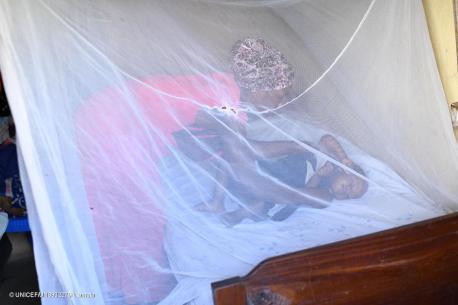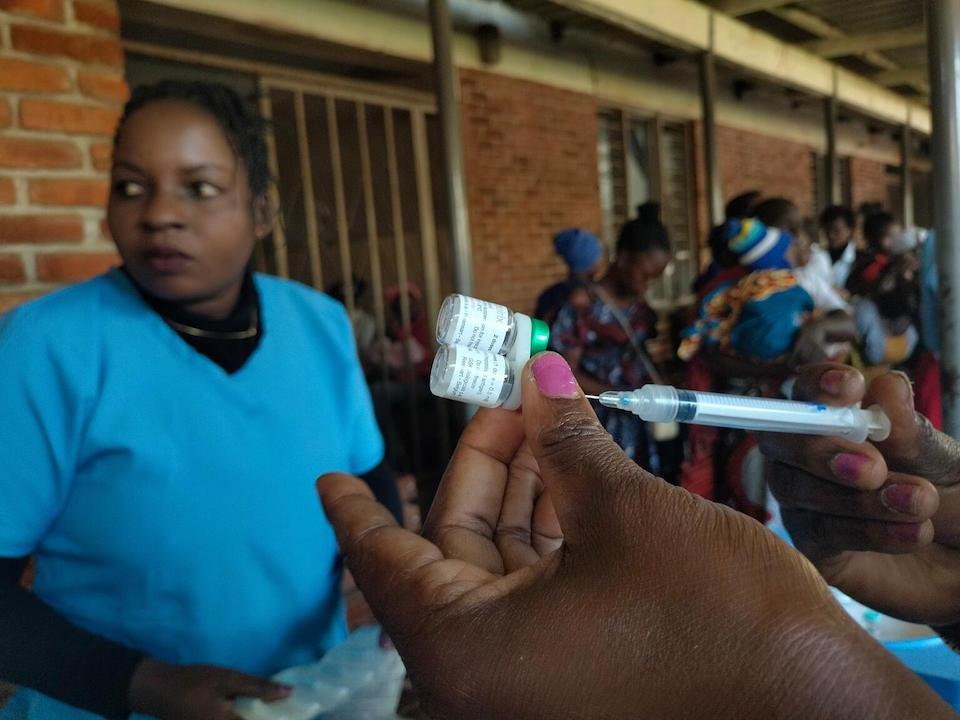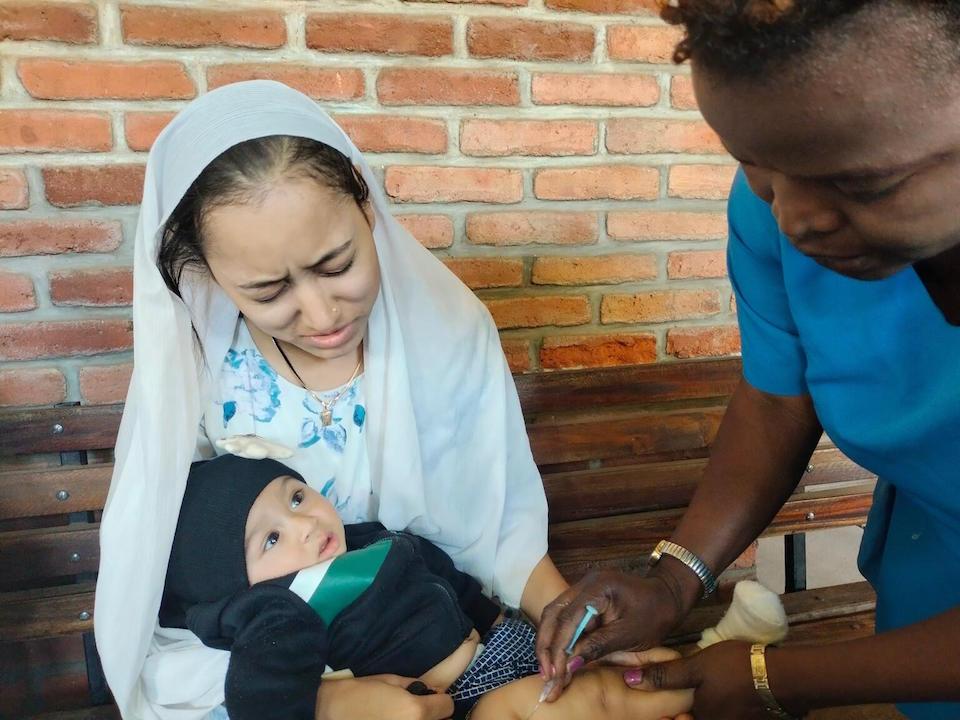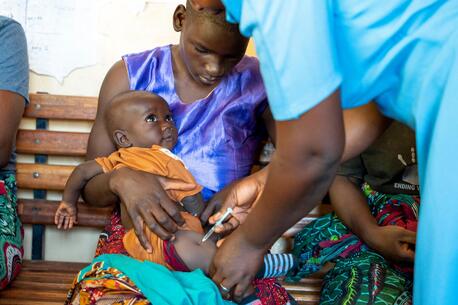
UNICEF Prepares Major Rollout of Lifesaving Malaria Vaccine
Delivery of 18 million doses to 12 African nations starting early next year marks a major step forward in the fight against one of the leading causes of death for vulnerable children under 5.
New vaccine to reach more kids in Ghana, Kenya and Malawi — and debut in Benin, Burkino Faso, Burundi, Cameroon, Democratic Republic of the Congo, Liberia, Niger, Sierra Leone and Uganda
UNICEF and its partners are gearing up to deliver 18 million doses of the first-ever vaccine against malaria, a deadly mosquito-borne disease, to 12 African nations.
One of the leading causes of death across the continent, malaria kills nearly half a million young children in Africa each year. That figure accounted for 95 percent of global cases — and 96 percent of global deaths from the disease — in 2021, the most recent year for which statistics are available.
“Nearly every minute, a child under 5 years old dies of malaria,” said UNICEF Associate Director of Immunization Ephrem T. Lemango. “For a long time, these deaths have been preventable and treatable; but the rollout of this vaccine will give children, especially in Africa, an even better chance at surviving. As supply increases, we hope even more children can benefit from this lifesaving advancement.”

The vaccine adds to an already powerful anti-malaria arsenal — including a major campaign by UNICEF and others to distribute anti-malaria bednets and better support for early diagnosis and treatment in febrile children.
These and other efforts have helped reduce malaria mortality rates among all ages by more than half between 2000 and 2019, from 30 deaths per 100,000 at-risk people to 13.
New malaria vaccine most promising new development in decades
The rollout of a vaccine, more than 35 years in the making, is the most promising new development in decades. When combined with existing malaria control measures, which also include preventative drugs administered during rainy season, some public health experts predict it could reduce malaria deaths by around 70 percent.
Since 2019, the vaccine, known as The RTS,S/AS01, has been administered to more than 1.7 million children in areas of Ghana, Kenya and Malawi as part of a pilot program to demonstrate its safety and efficacy. Starting in early 2024, the vaccination campaign will expand across those three nations, and will also be introduced for the first time into routine immunization programs in Benin, Burkina Faso, Burundi, Cameroon, Democratic Republic of the Congo, Liberia, Niger, Sierra Leone and Uganda.
For a long time, these deaths have been preventable and treatable; but the rollout of this vaccine will give children, especially in Africa, an even better chance at surviving. As supply increases, we hope even more children can benefit from this lifesaving advancement. — Ephrem T. Lemango, UNICEF Associate Director of Immunization
At least 28 African nations have expressed interest in receiving the vaccine. The rollout plan for 2023-2025 is part of a framework for allocation designed to prioritize areas where the risk of malaria illness and death among children are the highest.
To develop that framework, and to help ensure equitable distribution while supplies remained limited, WHO convened a panel of experts in 2022 that included representatives from UNICEF, WHO and the Gavi Secretariat, civil society and Africa-based NGOs like the Africa Centers for Disease Control and Prevention, or Africa CDC.
The vaccine requires three doses administered between the ages of 17 months and 5 years, and a fourth dose roughly 18 months later.

Bednets still effective — and crucial — for preventing malaria
UNICEF continues to support the distribution of anti-malaria bednets as a key intervention. UNICEF's supply division buys long-lasting insecticidal nets, or LLINs, which are more effective than untreated mosquito nets because they are produced with netting treated with a WHO-recommended insecticide, adding a chemical barrier to the physical one, which lasts for up to three years or 20 washings.
The percentage of children sleeping under insecticide-treated nets in sub-Saharan Africa increased from less than 40 percent in 2011 to over 50 percent in 2021.
Studies have shown that malaria can increase the incidence and severity of malnutrition. Malnutrition, in turn, can increase the risk of complications from malaria, though the evidence is mixed on whether malnutrition affects the risk of malaria infection.
UNICEF, the largest buyer of vaccines in the world, is working tirelessly to make sure that every child, regardless of where they are, has access to the vaccines they need to not only survive, but thrive. Support UNICEF. Donate today.

